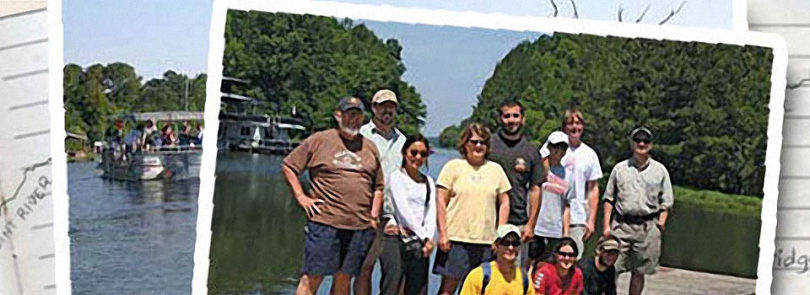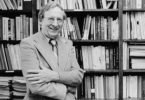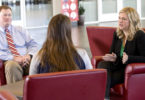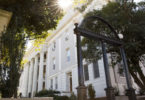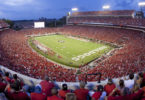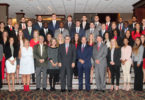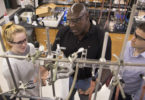Community service is not a new concept. Neither is the idea of learning by doing. But combining the two into a teaching style called service-learning is one of the hottest topics in higher education today.
The idea behind service-learning is to integrate classroom learning with real world experiences that teach students how to share their knowledge with communities in need. While community service is usually thought of in fields like social work, education and environmental design, many traditionally research-based disciplines like chemistry, biology and history are also finding ways to use students’ new-found knowledge to assist communities with specific issues.
To help southwest Georgia communities along the lower Chattahoochee River improve their economic outlook through heritage tourism, Danny Bivins from UGA’s Fanning Institute designed a multi-disciplinary service-learning class nicknamed Project Riverway that immerses students in the area’s culture before requiring them to develop plans to help the region.
“One of the goals of the class is to help students see the importance of getting involved in their own communities someday,” Bivins said. “This is another way of doing service for people who are looking for something different from Peace Corps and Teach for America.”
Bivins and two other Project Riverway professors – Alfie Vick from the College of Environment and Design and Leara Rhodes from the Grady College of Journalism and Mass Communication – recently were named UGA Service-Learning Fellows.
The Fellows program, which started in 2006, encourages faculty to “investigate, develop, implement, and integrate service-learning into their teaching, research and public service work,” according to UGA’s Office of Service-Learning Web site. Fellows receive $2,500 to support service-learning projects for one year.
So far, 19 UGA faculty have been named fellows, from disciplines such as child and family development, pharmacy, journalism, social work, education and horticulture.
“Project Riverway is a great example of a class that combines the strengths of public service, teaching and research, and focuses on community needs in our state,” said Shannon Wilder, director of UGA’s Office of Service-Learning.
By giving students the opportunity to get out of the classroom and solve real world problems, Project Riverway and other service-learning classes help young people see the many ways they can be active citizens in their communities.


